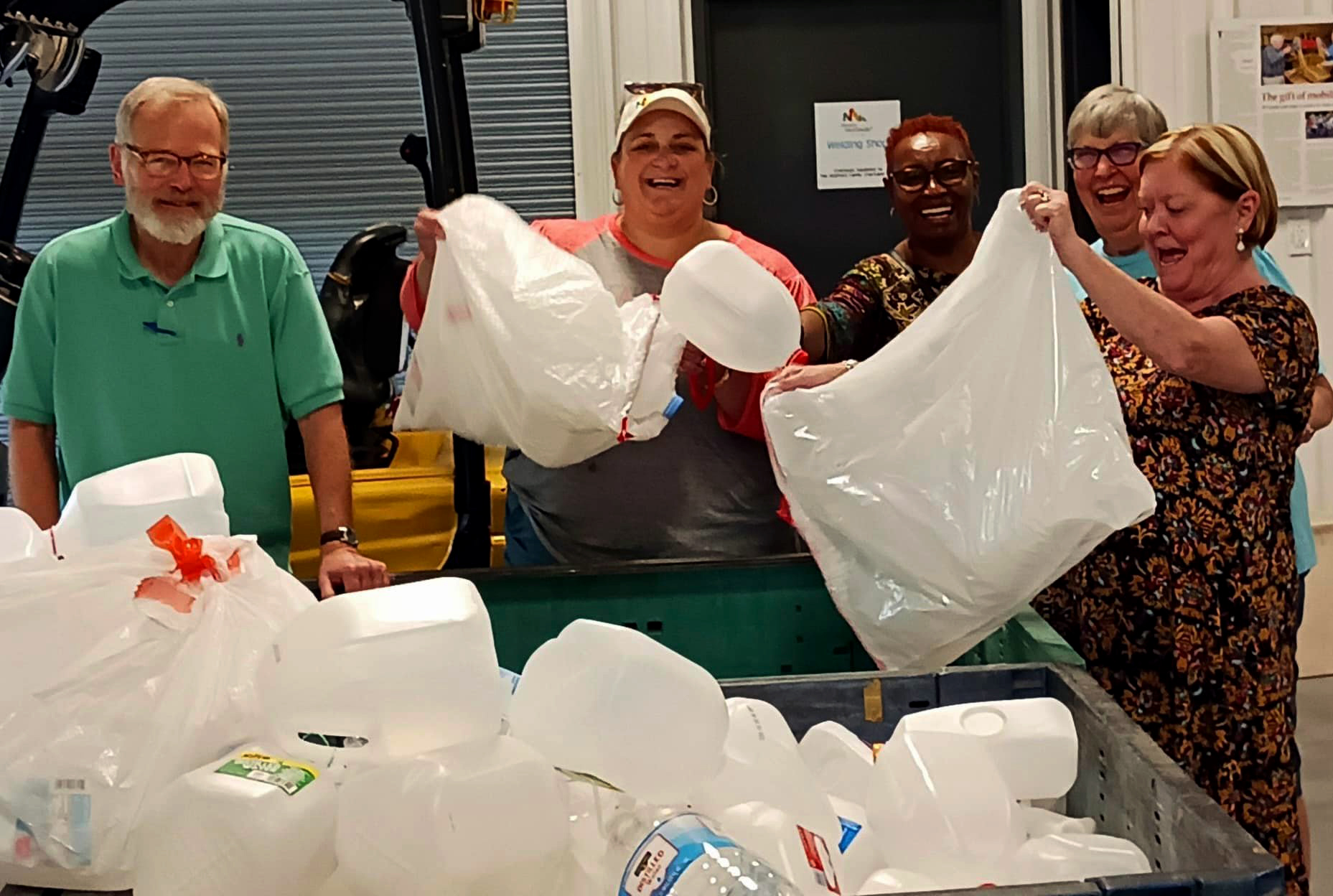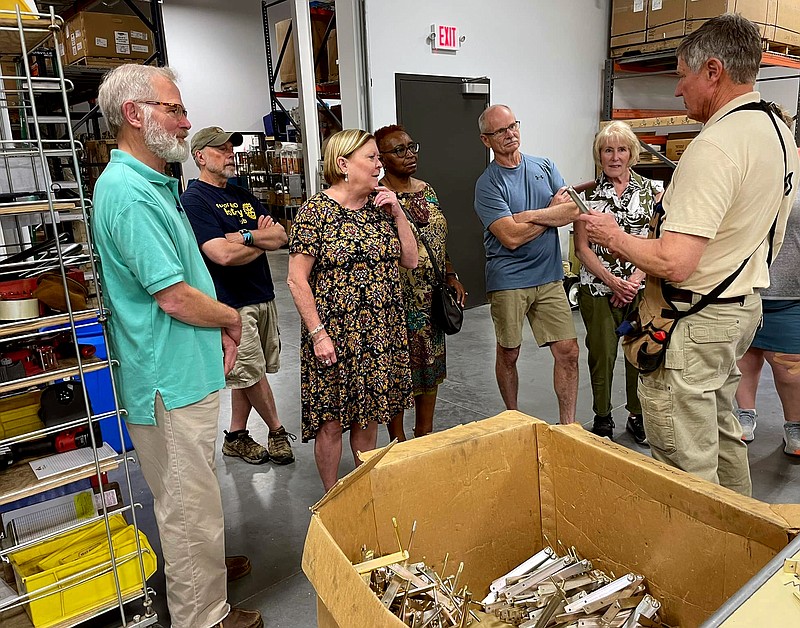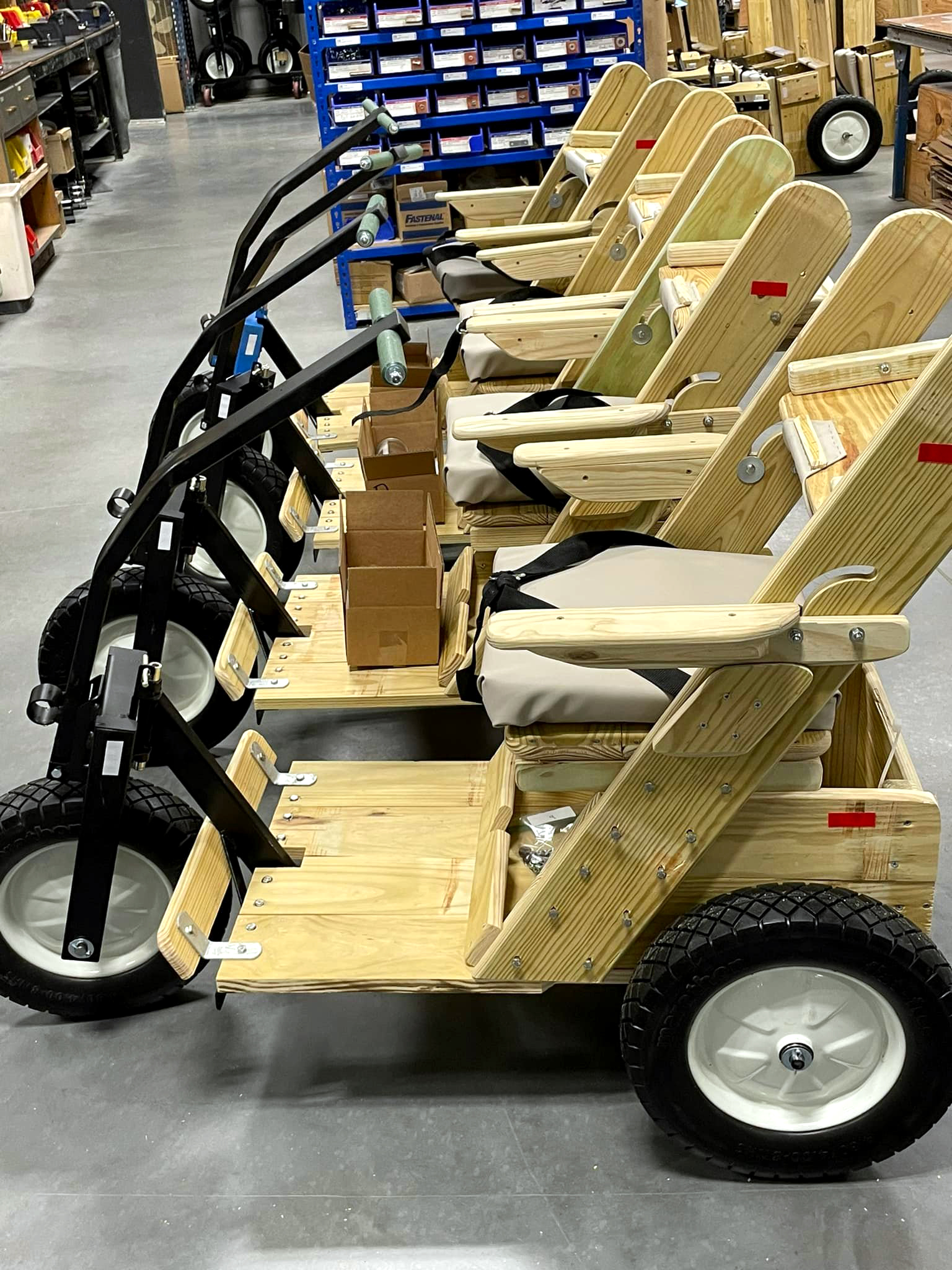Members of the Rotary Club of Fulton helped assemble mobility carts for people in developing countries Wednesday during a tour and service project at Mobility Worldwide in Columbia.
The carts will be delivered at no cost to people who are unable to walk due to illness, disease, birth defects or injuries, including those caused by landmines.
Mobility Worldwide is also repairing donated sewing machines to be sent to developing countries. Some of the machines have been sent to Tanzania, where Fulton Rotary has an ongoing international project serving mothers and children.
A mobility cart is a sturdy, three-wheeled vehicle propelled by hand-crank or pull handle.
The World Health Organization estimates 70 million people worldwide need wheelchairs, yet only 5-15 percent of people have access. People in developing countries often depend on the donation of wheelchairs that are frequently of poor quality and not suitable either for the users or the environment.
Mobility carts are designed to go where conventional wheelchairs can't. They're ideal for indoor use or for outdoor environments, especially in rural areas where roads are non-existent or in disrepair. They allow children to attend school, and families to find employment, go to clinics, markets, church and social gatherings.
Mobility Worldwide MO – Columbia was founded by the Rev. Mel West and missionary Larry Hills, with the help of product designer Earl Miner, in response to the loss of mobility in Zaire due to landmines and polio.
Rotary has been fighting polio since Rotary International and its partners launched the Global Polio Eradication Initiative in 1988. At that time, there were 350,000 cases of polio in 125 countries every year.
Great progress has been made against the disease since then. Today, polio cases have been reduced by 99.9 percent, and just two countries continue to report cases of wild poliovirus: Afghanistan and Pakistan.
 Submitted
From left, Bob Sterner, Stephanie Vollmer, Coletta Williams, Mary Ann Beahon and Debbie Laughlin add milk and water jugs to the collection at Mobility Worldwide. Fulton Rotary has been collecting jugs for a year. They are used to pack around mobility carts as protection during shipping and to carry water when they reach their destination.
Submitted
From left, Bob Sterner, Stephanie Vollmer, Coletta Williams, Mary Ann Beahon and Debbie Laughlin add milk and water jugs to the collection at Mobility Worldwide. Fulton Rotary has been collecting jugs for a year. They are used to pack around mobility carts as protection during shipping and to carry water when they reach their destination.

